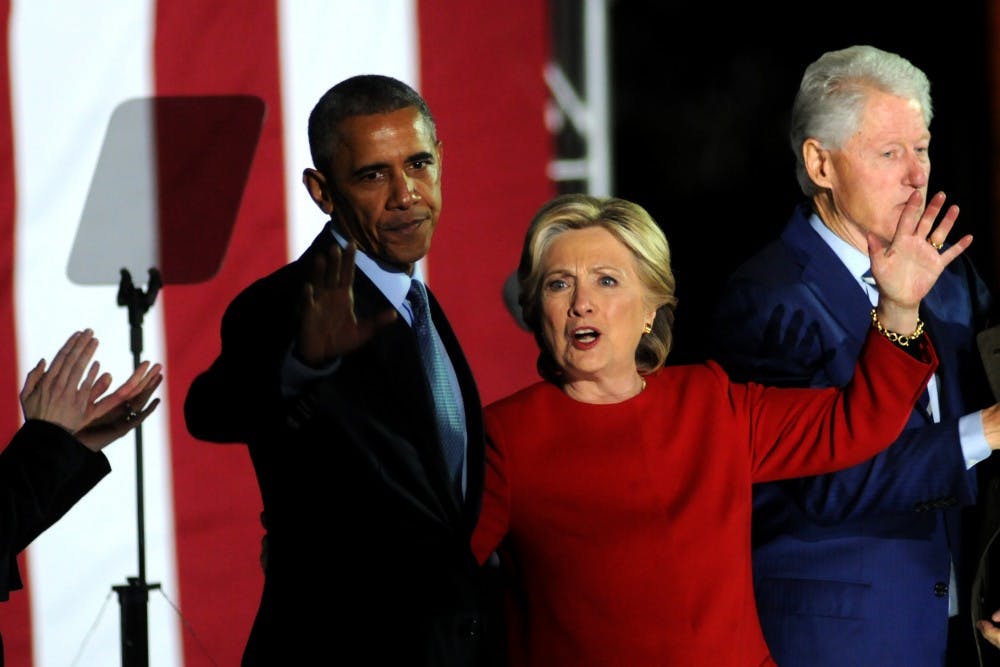
As Trump prepares to enter the White House, the political career of Hillary Clinton lies in uncertainty.
Credit: Carson KahoeIn the wake of this year’s emotionally charged election — which rocked the media world and stunned Penn’s campus — both the public and the media have turned their attention to 1968 Wharton graduate and President-elect Donald Trump.
However, while Trump prepares to enter the White House and hold office for the first time, the decades-old political career of his opponent lies in uncertainty.
As news and rumors of Trump’s cabinet appointments saturate news and social media, Americans are left wondering what Hillary Clinton’s political future will look like.
“[I] think this is probably a pretty crushing blow for her,” said Matthew Levendusky, a professor and graduate chair of Penn’s Political Science Department. “It’s certainly hard to imagine her running for office again...given the way this election played out, I would find it hard for Democrats to coalesce around her. That said, she will still be a person on the public stage, even if she just stays involved with the Clinton Foundation.”
Professor Marc Meredith, the undergraduate chair of Penn’s Political Science Department, emphasized that regardless of her long-term plans, Clinton might initially keep her distance from the public.
“I think there’s not much to be gained right now from being in the public eye,” he said. “You don’t want to come off as seeming like a sore loser, so...there’s got to be some time between the election and when she’s out there.”
Many have compared Clinton to Al Gore, the Democratic candidate in the 2000 election who also won the popular vote but lost the Electoral College. College junior and political science major Alex Cohn theorized that two candidates’ post-election futures might also resemble one another.
“When we look at Al Gore...his big thing is climate change, and he’s really taken that on,” Cohn said, adding that he thinks Clinton will get involved with child advocacy work.
Meredith and Levendusky both agreed that Clinton will most likely focus on the causes important to her, although it is unclear how quickly she will want to re-enter the public eye.
“It seems as if she has a genuine passion for healthcare and education, so I would think to an extent she wants to get involved in things where she’s had a focus, but it’s really hard to know,” Meredith said. “I think we’re about to have a big battle over the future of healthcare that will be quite prolonged, and she might find that her voice is important in that discussion.”
Both professors said although Clinton likely wants to avoid direct involvement in the Democratic Party’s next steps, it is consistent with her character to persevere as a longstanding advocate for change.
“I don’t know her personally, but from talking to people who know her and have worked with her, it does seem like she genuinely believes in what she said in her concession speech: do the most good you can for the most number people you can, for as long as you can,” Levendusky added. “That’s something she genuinely believes in and believes in trying to produce that kind of change, so I suspect she will continue to work for that for the years to come.”
The Daily Pennsylvanian is an independent, student-run newspaper. Please consider making a donation to support the coverage that shapes the University. Your generosity ensures a future of strong journalism at Penn.
Donate




